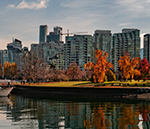Since it has the top universities and modern infrastructures, as well as high-level faculty members, the United Kingdom is one of the most popular study abroad destinations among international students.
But from the other hand, the visa application process for the United Kingdom is one of the most rigorous and thorough, resulting in the rejection of many visa applications for study in the United Kingdom.
The most common causes for UK student visa rejection are addressed here.
Thousands of visa applications are filed to the UK embassy each year from around the world that do not match the visa requirements and are thus rejected. To avoid a student visa refusal in the United Kingdom, you must confirm that you are eligible and meet the requirements, as well as submit the required papers.
In this article, we will cover the most prevalent causes for student visa refusals in the United Kingdom.
Without further ado let’s get started…
Top 5 reasons for rejecting a student visa application in the United Kingdom
1. Lack of academic achievements:
Candidates who wish to study in the United Kingdom must demonstrate their academic achievements in order to meet the high academic standards of British higher education.
Students frequently fail to achieve these requirements, resulting in the rejection of their student visa, specifically if the administration believes the student will be unable to cope with their educational system or will suffer an English language barrier in the country.
2. Lack of interview skills:
The student visa interview stage in the United Kingdom is vital and plays a significant role in the approval of your application.
Keep the following in mind during interviews:
• Exhibiting self-assurance and charisma
• Preparing for the interview and avoiding reluctant answers
• Gathering all relevant information and being knowledgeable about the country, city, university, and specialism they wish to pursue.
3. Insufficient bank balance:
Candidates visiting the United Kingdom must be capable of covering tuition fees, living costs, and all other necessary expenses during their stay.
An applicant will be required by law to demonstrate that he or she has sufficient means to pay his or her education and living expenses for the duration of the course, and that the funds are backdated to at least 28 days in the bank account.
Frequently, candidates overlook these intricate subtleties and fail to take them seriously.
4. Insufficient documentation:
Candidates frequently undervalue the usefulness of supporting materials. Candidates must submit supporting documentation in addition to the visa application form in order for their application to be considered.
Candidates should exercise extreme caution and present all documentation requested by the agency, along with the requisite certifications. Documents must be written in English and meet international standards.
5. Provide inaccurate information:
The UK Student Visa Application Form is the most crucial document for students applying for a student visa in the United Kingdom. Students frequently supply false information, which leads to the rejection of a UK student visa.
For the first time, the visa application form can be a difficult and confusing paperwork.
Candidates may become perplexed and misunderstand questions. As a result, the likelihood of making a mistake is quite great and should be avoided at all costs.
Reapply for a UK student visa after refusal
If your student visa is turned down, you do have opportunity to reapply.
You should be very careful while resubmitting a UK visa application ensuring that the application is accurately filled out and that all necessary details is already included in order to avoid the visa application being refused again.
How long does it take to reapply for a UK visa after one has been denied?
Reapplying for a UK visa once it has been rejected has no time limit. On the contrary, there is really no requirement to wait a certain amount of time after being denied a UK visa before applying again.
Perhaps an application for a UK visa must be made as soon as possible, especially if the grounds for refusal are irrational.
How to successfully apply for a UK visa after its rejection?
You should not repeat the same mistake. As a consequence, there is no need to waste loads of effort, money, or effort in doing so. What’s essential is a comprehensive awareness of the UK visa application criteria, as well as the ability to present a well-prepared application that will persuade the appropriate committees.
Candidates must:
• Carefully read the rejection letter.
• In light of the foregoing, consider the reasons for rejection.
• Rewrite the application to avoid and correct the reasons for rejection.
What if your application for a UK visa is repeatedly denied?
Number of applications permitted
In conformity with immigration regulations, there is no legal or administrative limit on resubmitting applications after denial. As a result, applicants are free to reapply as many times as they like.
You may have heard or read that denying repeated visas may result in you being blacklisted and barred from applying again. Obviously, this is a terrible idea. In fact, when it comes to immigration laws for studying in the United Kingdom, there is no such thing as a blacklist or a permanent ban.
Clearly, the application will not be denied. Furthermore, the applicant’s record (such as a criminal conviction or grounds relating to personal or behavioral background) is more important than the number of times you have filed for an entry permit.
Other possibilities
- If your visa application has been repeatedly denied, it may be time to investigate other possibilities, such as:
- Applying for a study visa in another nation
- Depending on the specialization in which the student desires to pursue, there are numerous countries where you can apply for a student visa.
- Finish your studies in your own nation
- A second alternative is to study in your own country, particularly if the educational system is strong and the degree of specialty in which you intend to finish your studies is comparable to that of international specialization.
Important Considerations:
You should be able to describe why you want to study in the UK, what you will study, and how this will equip you to work in your home country once you finish your studies during this brief interview.
You must be willing to clarify why you are applying to the university that has accepted you and how you intend to pay your tuition, living expenses, and other expenses.
Make sure to follow the steps outlined above.
If you follow all of these stages and advice, you will have a very good chance of getting a UK study visa.
– Written by Team DEC




